First Occupation
On Wednesday, 25 January, the Autonomous Nation of Anarchist Libertarians (a squat crew that go by the acronym of ANAL) occupied 102 Belgrave Place, SW1X 8BU, a Grade II listed building on Eaton Square, and invited London’s homeless to find a safe place to sleep under its expansive roof. The £15 million mansion, which faces onto Eaton Square, stands on the UK’s most expensive street, with homes costing on average £17 million. Owned by Russian billionaire Andrey Goncharenko, Chief Executive Officer of Gazprom Invest Yug – a subsidiary of Russia’s third largest gas and oil company – the Belgravia property is one of four the oligarch has purchased in London over the past three years, spending £41 million on a mansion on Lyndhurst Road in Hampstead, £70 million on 50 St. James’s Street in Mayfair, and £120 million on Hanover Lodge in Regent’s Park – the highest amount ever paid for a residential property in the UK.
The Autonomous Nation of Anarchist Libertarians announced their intention to turn 102 Belgrave Place into a homeless shelter, and between 30 and 40 people were housed there during the occupation. The building’s numerous small rooms make it an ideal layout for a hostel, giving rough sleepers somewhere safe and warm to stay – something that can mean the difference between life and death during the winter months. The three large reception rooms were turned into a kitchen and dining room, community hall and workshop space. Another room was transformed into a film room, and Ken Loach’s I, Daniel Blake was one of the films listed for screening. The central location of the new hostel made it easy for people to donate food, clothes and bedding, and visitors were generous in donating all three. Given Westminster Tory Council’s stated practice of forcibly sending its homeless out of London, the squat was also a shelter from the Westminster Police.
The following Saturday the occupation, which had announced itself as an ‘anti-fascist’ squat, was attacked by a group of about 20 fascists who smashed three windows and tried to force entry into the building. An English Defence League march was taking place in Westminster that afternoon, and it’s likely that the attackers, who included the Nazi-saluting Ian MacTaggot, was a breakaway group. There were about 50 squatters and visitors in the building at the time, and once the children were taken upstairs away from the stones, the attackers were fought off with fire-extinguishers. The police, who had sat in squad cars outside the squat all day, conveniently drove off half an hour before the fascists arrived, and returned shortly afterwards. The Metropolitan Police Force still hasn’t come up with an explanation of how a gang of 20 masked-up fascists were able to inflict such damage in broad daylight to a building on the most expensive street in London surrounded by CCTV at a squat that had been reported around the world and was being watched by private security guards – and still walk away without being stopped.
Hearing and Eviction
In response to the occupation of 102 Belgrave Place, the owner’s representative, MCA Shipping Ltd, sought a possession order, and with an alacrity that only a billionaire’s displeasure can command a hearing was scheduled for the following Tuesday. At 10am on 31 January, the Autonomous Nation of Anarchist Libertarians appeared in the County Court at Central London on a charge of trespass. On the one side were the claims of homeless squatters in a city in which over 8,000 people slept rough last year; on the other the possession rights of a Russian billionaire to a building that has stood empty since he purchased it in 2014. District Judge Lightman took until precisely 10.03am to find in favour of Goncharenko, and granted a possession order on 102 Belgrave Place. A costs order for £8,735.86 was made against the two squatters named in the action. ANAL subsequently announced their intention to resist the eviction.
Early the following morning, Wednesday 1 February, High Court bailiffs – assisted by the Metropolitan Police in what is a purely civil matter – turned up at 102 Belgrave Place. After several hours of resistance by the squatters, bailiffs broke through the barricades and the building, which had been occupied for a week, was emptied again – one of more than 20,000 empty properties in London with a total market value of over £12 billion. The 40 or so squatters who had been living there since the previous Wednesday were physically ejected by the bailiffs onto the street. During the eviction, WPS 163 explained to squatters that bailiffs from the Sheriff’s Office, following the High Court sanctioning of the eviction, ‘are legally allowed to remove people in whatever fashion they chose’. Whether this is true or not, it clearly established that for the Metropolitan Police Force property rights come before human rights. In what appears to be Westminster Council’s official housing policy for its homeless, the sergeant asked if any of the now homeless squatters ‘needed a lift to the police station’. The squatters declined the offer.
World Capital of Dirty Deals
From 2008 foreign nationals investing £2 million in the UK were offered a ‘golden visa’, and after 5 years qualified for permanent residency. Out of the 3,048 visas granted under the scheme, 60 per cent were awarded to Chinese and Russian nationals. London has since become home to 77 billionaires, the most of any city in the world, with 120 billionaires in total living in the UK with a combined wealth of £344 billion. Much of that wealth is invested in UK – and particularly London – property purchased through offshore companies. More than 100,000 UK land titles are registered to anonymous companies in British oversees territories like the Virgin Islands, or other secrecy havens like Lichtenstein. Transparency International and Thomson Reuters have been unable to identify the real owners of more than half of the 44,022 land titles registered to oversees companies, but 9 out of 10 of the properties were bought through tax havens. Almost 1,000 of the titles were owned by ‘politically exposed persons’ – powerful individuals identified as having political influence and constituting the greatest risk of corruption.
The International Monetary Fund has assessed that the value of illicit wealth laundered globally per year is between 2 and 5 per cent of Gross Domestic Product, which indicates the total laundered through the UK is around £90 billion annually. Given the UK’s tax laws and lack of transparency and the scale of investment in property, it’s likely to be far more. Following the privatisation of national assets in the former Soviet Union in the 1990s, billions of pounds were illegally transferred into the UK from the corrupt sale of mining rights, telecommunications contracts and gas and oil concessions. More recently, following the Arab Spring, deposed dictators have siphoned off hundreds of millions of pounds of their countries’ assets, much of it recycled through the UK property market. The City of London is now the world centre for illicit finance and dirty deals. Nearly half the companies named in the Panama Papers were registered in the British Virgin Islands, and 3,500 of the individuals and companies named are probable matches for suspected criminals, including terrorists, cyber-criminals and smugglers.
One of the companies named in the Panama Papers is the Redmount Group, an offshore specialist based in the tax haven of Gibraltar that shares the same address and director as MCA Shipping Ltd. This listed director, Tim Lewis, testified at the London County Court hearing into the occupation of 102 Belgrave Place, whose owner, Andrey Goncharenko, is a shareholder in MCA Shipping.
Second Occupation
On Wednesday 1 February, the day they were evicted from Belgrave Place, the Autonomous Nation of Anarchist Libertarians moved into new premises at 4 Grosvenor Gardens, SW1 0DH. Once again they invited London’s homeless to find shelter and safety there, and squatting and other campaign groups to use it as a meeting place. The huge reception on the ground floor was turned into a film screening room, and the room above, which opens out onto the balcony and views of the private garden, was used for music performances and art workshops in T-shirt printing and banner making.
For the past 35 years 4 Grosvenor Gardens has been the London address of Frost & Sullivan, an international market research, growth strategy and corporate training consultancy with offices in over 40 countries. But since the company moved to Chiswick last August the place has sat empty. The property was last purchased in June 1977 on a 93-year leasehold by Rowhurst Ltd, a real estate firm buying, selling and renting property. No financial information on the sale or market value of the property is available from the Land Registry, but with property values in SW1 increasing exponentially through the investment of international finance in London’s property market, Rowhurst Ltd may be content to let this Victorian building sit empty and unused for a further 6 months or even years. Then again, commercial space in Grosvenor Gardens is currently for rent at between £70-90 per square foot per annum; and despite the building being entirely empty, unit 4, 8 Grosvenor Gardens is currently listed as the box office address of Grosvenor Entertainments, a corporate hospitality and entertainment business selling tickets to concert, theatre, sports and corporate events.
What we do know about the finances of 4 Grosvenor Gardens is that the freehold was inherited last year by Hugh Richard Louis Grosvenor, the 7th Duke of Grosvenor, who avoided 40 percent inheritance tax on his £9 billion fortune because the estate is held in trust. The Grosvenor Estate began in 1677 with the marriage of Sir Thomas Grosvenor, the 3rd Baronet, to the 12 year-old heiress Mary Davies, who had inherited the manor of Ebury, 500 acres of marshy land north of the Thames and to the west of the City of London. This remained largely untouched by the Grosvenor family until the 1720s when they developed the northern part, now known as Mayfair; and a few generations later, in the 1820s, they drained the land to the south and built what is now Belgravia, named after one of the Duke’s subsidiary titles, Viscount Belgrave. It’s here that this Victorian town house in Grosvenor Gardens was built in 1868. Lieutenant General Augustus Henry Lane-Fox Pitt Rivers, a nineteenth-century army officer, anthropologist, archaeologist and aristocrat lived here between 1880 – when he inherited 32,000 acres in Cranbourne Chase and a fortune founded on the slave trade – and his death in 1900, a fact commemorated on a blue plaque at the front of the building.
Besides its extensive London property, much of the Grosvenor Estate’s investment and development portfolio is based in Britain and Ireland, with 133,100 acres in the UK, 0.22 per cent of its total land, and considerably more than the Queen – whose London address, Buckingham Palace, can be seen from the upper stories of 4 Grosvenor Gardens. Following international expansion in the 1950s the Grosvenor Group, a property corporation operated on behalf of the Duke of Westminster and his family, now has offices in 18 cities across the world, including in the USA, Canada, Australia, Sweden, France, Japan, China and Hong Kong. Despite current total assets of £47.6 billion, the Grosvenor Group paid only £58 million in tax on profits of £527 million in 2015. The father of the current Duke, whose family motto is Virtus Non Stemma (Virtue Not Ancestry), was once asked what advice he’d give to young entrepreneurs keen to emulate his success – to which he replied: ‘Make sure they have an ancestor who was a very close friend of William the Conqueror.’
Homes for Weapons
Shortly after moving into 4 Grosvenor Gardens, the Autonomous Nation of Anarchist Libertarians announced their plans to open the property next door, which also sits empty, as a community centre. Listed for sale on 16 January 2016 with a £24,000,000 guide price, this 18-bedroom freehold terraced house was advertised in Rightmove by marketing agents My Online Estate Agent (which saved the seller around £300,000 in estate agency fees) as follows:
‘We are delighted to offer for sale this superbly appointed property maintained to the highest possible standard. This Grade II Listed building, part of terrace constructed circa 1868, arranged over 7 floors. The property boasts many outstanding features including parquet flooring, original wood panelling, ornately decorated ceilings. The three highly appointed reception rooms all featuring wood panelling and parquet floors. Spacious reception room and dining room situated on the first floor, balcony to the front and terrace to the rear. Fully fitted bespoke kitchen with central island housing oven and hob, all fitted appliances, marble work surfaces, large windows leading to terrace. Laundry room located on the lower ground floor. 18 bedrooms some with en suite, and fitted robes all with parquet flooring. Master bedroom with superbly appointed en suite. 11 bathrooms. Staircases to all floors are of marble construction. The property overlooks beautiful gardens to the front of the property with Buckingham Palace in view. Access to the private Belgrave Square Gardens is available by annual fee charge to Grosvenor Estates for the key access. The property has a flat roof which could easily be converted to a roof top terrace. Private, secure residential parking.’
This property – which although empty is registered as residential and therefore cannot be squatted legally – sold for £322,800 in February 1999, then for £6,150,000 in December 2013 (an increase of 1,805 per cent), and most recently on 22 June 2016 for £16.9 million (a 174 per cent increase). Purchased the day before the European Union Referendum at two-thirds the asking price, the money was paid in full by His Excellency Major General Hamad bin Ali Al Attiyah, since June 2013 Qatar’s State Minister for Defense. In July 2014, His Excellency signed a $11 billion arms deal with US Defense Minister Chuck Hagel just months before the latter was removed from office. And in February 2016 it was revealed that Qatar politicians, among them the General, had showered the UK’s then Defence Procurement Minister, Philip Dunne, with gifts worth more than £33,000 over the past four years, including a £5,000 Concord watch, Chanel perfume, a Montblanc wallet, and an Yves Saint Laurent tie and cufflinks. Since Dunne was appointed Minister in 2012, Britain and Qatar agreed arms deals worth £173 million. In September 2014 Minister Dunne was photographed with General Hamad bin Ali Al Attiyah just days after Qatar was accused of supplying weapons to extreme Islamist groups, including Syrian terrorists linked to Isis.
Since its sale last June, 6 Grosvenor Gardens has subsequently been estimated by Zoopla to have a current value of between £30,539,000 and £35,993,000. Obscene as these escalating figures are, it should be noted that this residential property is single-fronted, with three windows looking onto the private gardens (which Westminster Council sold to property developer Oakvest in 2012); while the commercial property at no. 4 being squatted by the Anarchist Nation of Anarchist Libertarians is double-fronted and nearly twice the size.
Homes for People
ASH visited both squats, and it was clear neither property had been occupied for some time. Indeed, under the criteria being applied by London councils to decide the future of housing estates, 102 Belgrave Place should be demolished. Its peeling paint and blackened exterior has regularly been used by politicians as evidence of a ‘sink estate’; and the signs of water damage to the interior ceilings, according to our Cabinet Members for Housing, are a sign of anti-social behaviour. Commissioned studies have concluded that first-floor balconies like the one looking out onto Eaton Square, without adequate lighting and not overlooked by neighbours, are a breeding ground for crime and drug dealing. And rust, like that seen on the cast-iron veranda, has been interpreted as the external sign of structural failings that justify full demolition. In fact, the building, which used to house a Spanish cultural centre, hasn’t been used since it was purchased by Goncharenko in 2014, and as such – according to legislation in the government’s Housing and Planning Act 2016 – now qualifies as ‘brownfield land’.
Although unoccupied for only 6 months, 4 Grosvenor Square was, if anything, in an even worse state of disrepair. In one room the ceiling has fallen in, probably due to a leaking boiler, but the pile of rubble on the carpet below – if we are to believe our expert Regeneration Officers – is indicative of a failed experiment in this architectural form. By the same token, its damp and worn carpets betray a broken community living forced to live in an unloved property; while large cracks across the walls and ceilings are signs that the building is in danger of imminent collapse. The property has numerous broken windows – doubtless from gang warfare, as it is well known that SW1 is a battleground for rival Russian factions. And the strip lights appear unchanged since the property was last purchased in the 1970s, with electrical fittings and alarm systems a couple of decades out of date – proof, according to some recent academic studies, that the entire building has come to the end of its natural lifespan.
However, while such lack of maintenance – and the spurious interpretations of their causes – are cited by councillors as reasons for demolishing the homes of tens of thousands of council residents, any honest architect or builder will tell you that all these properties need is refurbishment. With the current housing shortage in London, and the rising numbers of homeless and households living in temporary accommodation, leaving either building standing empty for years on end to do nothing more than accumulate capital for their owners is morally and socially unacceptable.
That they have been, however, means that – under the Housing and Panning Act – planning permission in principle must now be granted by Westminster Council to any application for the building’s redevelopment as housing – including social housing – in a borough in which the need for homes for social rent has never been higher. When Westminster council granted Andrey Goncharenko planning permission for changes to 102 Belgrave Place – which included, unsurprisingly, installing a swimming pool in the basement – they concluded that the property was not suitable to include social housing, and agreed to accept a payment in lieu from Goncharenko of £816,000. ASH disagrees with both this conclusion and agreement. With current average waiting times for social housing in Westminster ranging from 10 years for a 2-bedroom flat to up to 25 years for a 4-bedroom house, and with 6 per cent of its accepted homeless being the result of evictions from private rented homes, Westminster Council have an obligation to requisition both disused properties and approve plans to renovate them either as hostels for the homeless or as social housing for the 2,484 households living in temporary accommodation in the borough and 4,500 priority households on the council’s housing waiting list.
If they refuse, the Autonomous Nation of Anarchist Libertarians are showing to the London public that there are plenty of squatting crews in London ready to bring these deposit boxes for offshore investment back into practical use as homes for the people who need them. With the number of people forced to sleep in doorways having doubled since 2010, there is no shortage of homeless people casing London’s thousands of empty properties for potential squats.
Direct Action
This Thursday, 9 February, the County Court will once again order bailiffs from the Sheriff’s Office – once again with the support of the Metropolitan Police Force in what is still a purely civil case – to evict the Autonomous Nation of Anarchist Libertarians from 4 Grosvenor Gardens, a property which until the previous week has sat empty and unused for the last 6 months. ANAL have already said they will move to another property in a borough in which Westminster Conservative Council consistently refuses to provide figures on how many homes stand empty.
Last Monday, 30 January, on the orders of Sheffield City Council and following a ruling by Sheffield County Court, South Yorkshire Police evicted Tent City from Park Hill, an estate which was sold in 2004 to property developer Urban Splash for £1, and on which 600 homes have stood empty for 14 years. That evening Sheffield Tent City, which had provided shelter and community for around 40 rough-sleepers for 4 months, moved to its new home – a grass island a few hundred yards away in the middle of the Park Square Roundabout.
On Wednesday 25 January, the compulsory purchase order on the football ground, businesses and homes of the working-class community of Millwall, under threat of eviction by Lewisham Labour Council, was withdrawn. The Association of Millwall Supporters subsequently announced its plans to expose the corruption of the council and its links to offshore property developers Renewal, whose directors include the Mayor of Lewisham, Sir Steve Bullock, and the Leader of Southwark Labour Council, Peter John OBE.
On Saturday 7 January, Harrods waiters and chefs, following union representation by United Voices of the World, protested the theft of up to 75 per cent of their tips by the owners, the Qatari Investment Vehicle, which bought the Harrods Group in 2010 for £2 billion. Despite the arrest of eight protesters by the Metropolitan Police Force, including the General Secretary of the union, the following week Harrods conceded to UVW’s demands that workers will receive 100 per cent of their tips.
More and more people across Britain are resisting the arms of our political state, whether government, council, law court or police. More and more they are exposing them as nothing more than instruments of capitalist exploitation, acquisition, inequality and violence. More and more people are taking the direction of their lives into their own hands rather than spending them in the service of their wage-masters, deciding themselves on the rightness of their actions whatever their legality, building communities outside the ideological structures of the state, and opposing the forces of our economic, political and legal subjugation – not with appeals to our corrupt and increasingly repressive state apparatus – but with direct action.
Architects for Social Housing













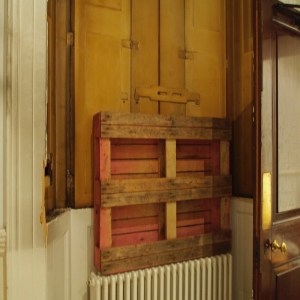










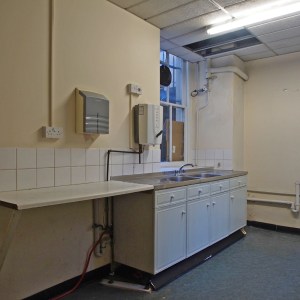


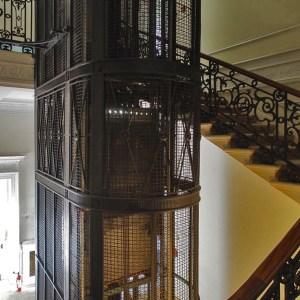



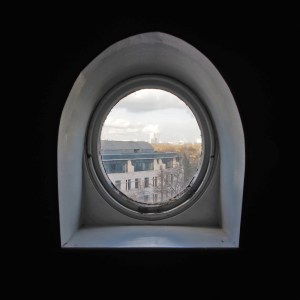
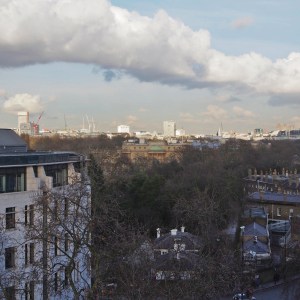





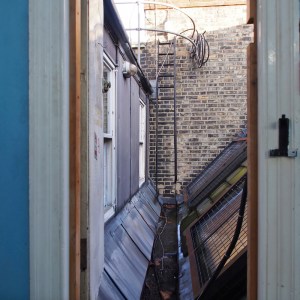
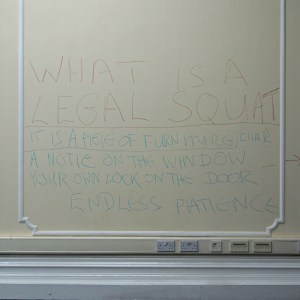

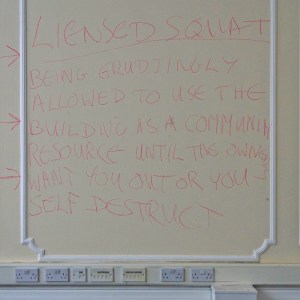







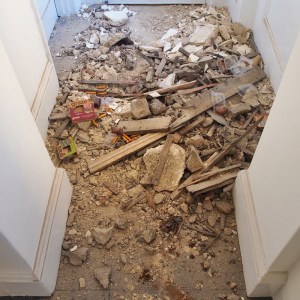



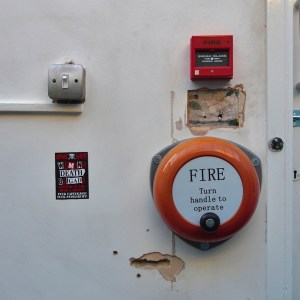
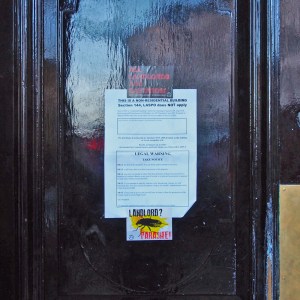





Bloody marvellous, all power to you! Thanks
LikeLike